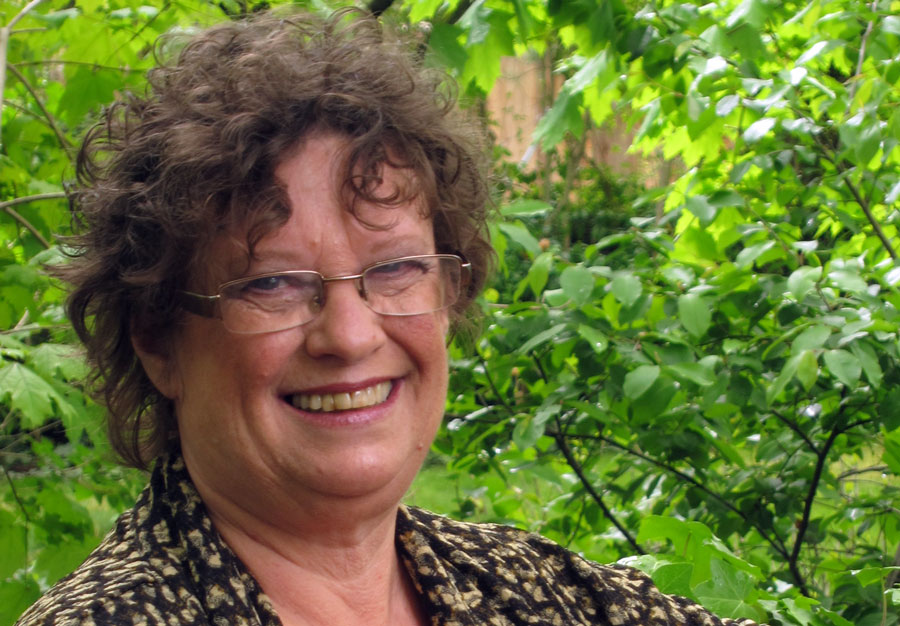I first got curious about Barbara Rogan after devouring (and reviewing) A Dangerous Fiction, the most recent of her eight books. Only eight months later, I found myself reviewing Suspicion. But it wasn’t until I tried to nail down what books I like that I realized I really wanted to interview her.
Though I consider her a fellow author of #coastalfiction, her experiences and perspective on books, publishing, and teaching online are refreshingly different from mine. I’ll let her take it from here.

What’s the biggest change you’ve seen since publishing your first novel, in 1982?
The advent of ebooks. When I was a young writer, I used to dream of seeing all my books in print at once, but that was a boon offered only the top bestselling writers. Now thanks to ebooks, my entire backlist is readily available.
On the other hand, I think that the status of being a published author has diminished. Amazon has enabled anyone to self-publish and distribute their own work. As a result, everyone and his brother is an Author now.
Water and coastline seem to be powerful draw many of your characters. Did that imagery sneak up on you, or is it consciously included?
It definitely snuck up on me, since until you pointed it out, I’d never thought of water or the coast as a recurrent theme of mine! But it does make sense. I grew up on an island—Long Island—and the shore has always been my place to go for a shot of serenity, healing and renewal. I may have passed that tendency on to my characters.
In Suspicion, the haunted house at the center of the story overlooks the Atlantic shore, and that was deliberate and is meaningful to the story. The husband of the main character is a chaos physicist, and he was first drawn to the house by that view. The shore, he explains to his wife, is the intersection of two elements and thus ever-changing. The view out their window will never be the same twice. The house itself, which contains both living and dead characters, also represents an intersection of discrete states of being, which results in turbulence.
What’s the biggest difference between writing novels and non-fiction?
There’s more freedom but less safety in fiction. Creating something that never existed before feels like crossing a tightrope over a chasm and knowing that at any moment the rope could disappear. But if you have the stomach for it, fiction is a great instrument for examining the human heart and condition. I believe more truth—or deeper truths—emerge from good fiction.
With non-fiction, there are always odd facts and ungainly events that don’t fit the narrative you’d like to be telling…but you can’t fudge them because they really happened. For this fiction writer, writing non-fiction feels like doing gymnastics in a straight-jacket.
Your writing courses cover both technique and selling advice. Which do you think is your bigger personal strength as a teacher?
I see my role in teaching the business of publishing as one of demystifying what can seem to aspiring writers like a pretty intimidating, unwelcoming industry. Literary agents and editors are just people who went into the field because they really, really love books. (No one does it for the money, which sucks.) That’s something they have in common with most writers. While there are barriers to getting “inside” publishing, once you break through by selling your work, you’re likely to feel very much at home.
But if I had to choose between teaching the business and the craft of writing, I’d choose the craft. For one thing, the best way to get published is to write an irresistible book—and that takes a high degree of craft. What I love most is finding talented writers who need just a bit of help to raise the level of their work, so that it makes the transition from “promising but amateur” to salable fiction.
Thanks to Barbara Rogan for sharing her perspective! Check out her website for info about ongoing courses (as well as the occasional dose of snark). And please feel free to add your own thoughts about writing, publishing, and coastal fiction to this ongoing discussion; I read and appreciate every single comment and email.
I’ve read many of Barbara’s books, but I still love A Heartbeat Away!
And,
I wish A Dangerous Fiction was a start of a series!
Nancy,
Thanks for the note and completely agree… I’d love to hear what happens next in the publishing world of A Dangerous Fiction!